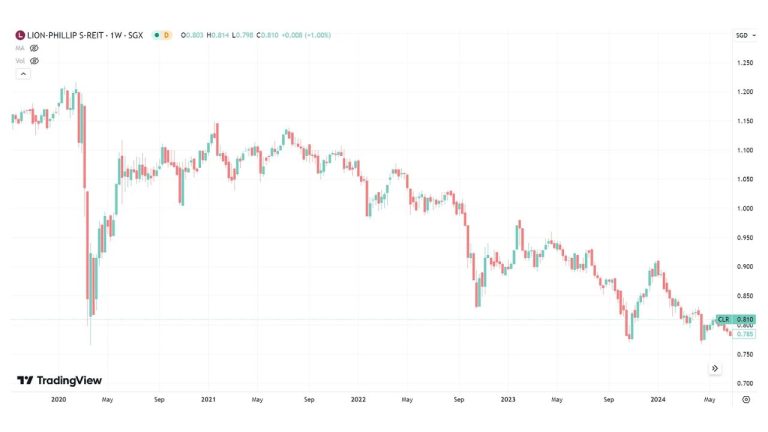
Hazelle
in Memos & Musings · 5 min read
Impending recession?
The FED has been battling against the highest inflation experienced for a long time and has raised the interest rates quickly in an attempt to curb the pace of inflation. This is not helped by the rising energy costs, the ongoing Russian-Ukraine war situation, the supply chain disruption, and contraction of the U.S GDP for the first 2 quarters in 2022.
It all seems that we may well be heading for an impending recession. A 2023 recession has been the consensus view with probabilities ranging from 60% to as high as 100% among economists surveyed by Bloomberg.
The million dollar question is, in light of a possible recession ahead, should we sell everything now and get out of the markets?


Screenshots of Bloomberg forecast of recession in 2023
First, what is a recession?
It is a period of significant decline in economic activity that may last for months or years. Some experts declare a recession when the country’s economy experiences a fall in GDP, rising unemployment levels and contracting income and manufacturing activity for an extended period of time. Recessions are part of the business economic cycle and are bound to come from time to time.
Who determines a recession?
The National Bureau of Economic Research is recognized as the authority to define the start and the end of U.S. recessions. Interestingly, they have their own set of definitions as to what constitutes a recession but by and large, the criteria still falls on factors such as real GDP, real income, employment and industrial production.
How should investors prepare for a possible recession?
Prices of stocks in the long run gravitate towards its earnings. Hence the emphasis is still on whether the companies are going to do well in the years ahead.
Let’s first look at the broader picture. If we look at how the overall markets have performed, we can see that the U.S. market indices do well over the long term.
The reason is that these market indices are an evolving basket of the best performing U.S. companies. Companies that do not perform well will eventually be replaced with companies that are more profitable.
Therefore, though recessions happen from time to time, they are just a blip in the grand scheme of things.


Average length and performance of bull and bear markets over the years
In fact, the pullback in the prices is a good opportunity to accumulate good stocks for the years to come. Historical data has shown that in the past few recessions, we can get double digit returns 12 months after the recession.


When we zoom in on individual companies, companies in certain sectors may also hold up better during a recession. Take a look at the stock performance of the consumer staples sector versus consumer discretionary, technology and the energy sectors during the last few recessions. During the 2020 and 2008 recession, the magnitude of the decline for the consumer staples sector is generally smaller compared to the other sectors.


S&P 500 sector performances (consumer staples, consumer discretionary, financial, technology, energy)
Examples of stocks which fall under the consumer staples sector are Coca Cola and Procter & Gamble. These are the businesses where the demand for essential items or everyday goods usually stays relatively stable. Hence, their earnings and cash flows remain relatively stable during recession.
For instance, take a look at the financials of Procter & Gamble during the 2020 recession. Procter & Gamble even managed to increase its sales and revenue. The operating cash flow also increased in 2020 and 2021.


Source: Procter & Gamble
If we travel back in time to the 2008 recession, though there was a decline in revenue and earnings, the percentage decline was just a single digit. The same goes for the cash flow. This tells us that the financials remained relatively stable even during recession.
During such an economy, we can consider having some positions of such stocks in our portfolio to reduce the overall volatility of our investment portfolio.




Source: Procter & Gamble
In addition, it’s good to pay attention to the debt levels of companies and avoid those with high debt loads that are highly leveraged as they may not be able to service their debts when lending standards tighten.
Even if one does not know how to pick the right stocks, by buying into an index ETF such as SPY, and dollar cost average through it, he is going to come out fine eventually.
It may sound ironic, but the best time for an investor who does not wish to time the market, is to buy when they believe the markets are going to come crashing down. You would want to buy on your way down to lower your cost instead of buying on the way up. Buying stocks at a lower price will help to increase the chances of maximizing the upside in the future.
The stock market is not the economy
To add on, the silver lining is that the stock market is actually not the economy! In fact the stock market usually moves ahead of the economy. This is because stock markets valuations reflect the expected future earnings, hence, stock markets are forward-looking.


By the time most people sell away their stocks, that could usually be the time when things are going to turn around. These are some examples where the stock market began recovering even before the recession ended.
(period of recession is highlighted in green below)


1981 recession


2008 recession


2020 recession
Setting the right mindset
In investing, as long as we are prepared for the worst case scenario, the upside will take care of itself. Hence, we are not really that concerned if a recession eventually plays out in 2023. And even if it does occur, if you ask us, our guess is that it would not be as bad as what we have seen during the Great Depression or the dot-com burst of the 1990s.
Recessions can be caused by many reasons, such as sudden economic shocks, excessive debt, asset bubbles or technological changes. The previous recessions were caused by major economic imbalances such as the housing bubble and the rapid overspeculation in U.S. equity valuations. Such imbalances are not as prevalent in today’s context. To add on, we already have seen significant drawdowns in the stock markets in 2022, so perhaps some of the effects of recession have been priced in as well.
In short, we do not need to over react even if a recession really comes. While recessions can sound scary and present some uncertainties, the stock market looks ahead and economic reports are reviews of the past.
Every recession eventually turns around and the stock market goes up over the long term. Remain invested if you already are and not be affected by the market noises which are not relevant to the long term earnings of the good companies you hold.
With this mindset, you will be able to navigate the markets joyfully in 2023.



About Hazelle
Chief trainer of The Moneyball Investors Playbook program and founder of The Joyful Investors, a financial education firm that seeks to help avid investors learn to invest better and make the journey a joyful one. I graduated with a first class honors in Bachelor of Accountancy from Nanyang Technological University (NTU) and started my auditing career in one of the Big Four. I believe that once we know how to build our wealth sustainably, we can then live our best lives ever.
Important Information
This document is for information only and does not constitute an offer or solicitation nor be construed as a recommendation to buy or sell any of the investments mentioned. Neither The Joyful Investors Pte. Ltd. (“The Joyful Investors”) nor any of its officers or employees accepts any liability whatsoever for any loss arising from any use of this publication or its contents. The views expressed are solely the opinions of the author as of the date of this document and are subject to change based on market and other conditions.
The information provided regarding any individual securities is not intended to be used to form any basis upon which an investment decision is to be made. The information contained in this document, including any data, projections and underlying assumptions are based upon certain assumptions and analysis of information available as at the date of this document and reflects prevailing conditions, all of which are accordingly subject to change at any time without notice and The Joyful Investors is under no obligation to notify you of any of these changes.
· · ·
Have you enjoyed this article? We’d be grateful if you would share this useful content to your friends who may benefit from it as well.



